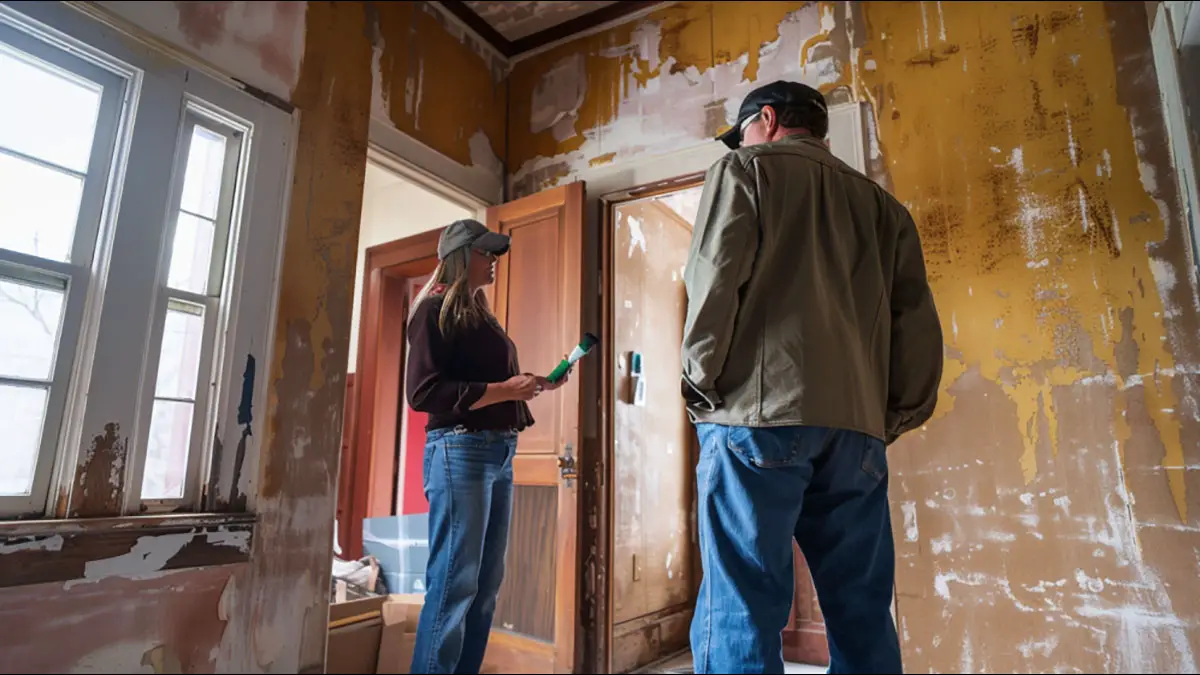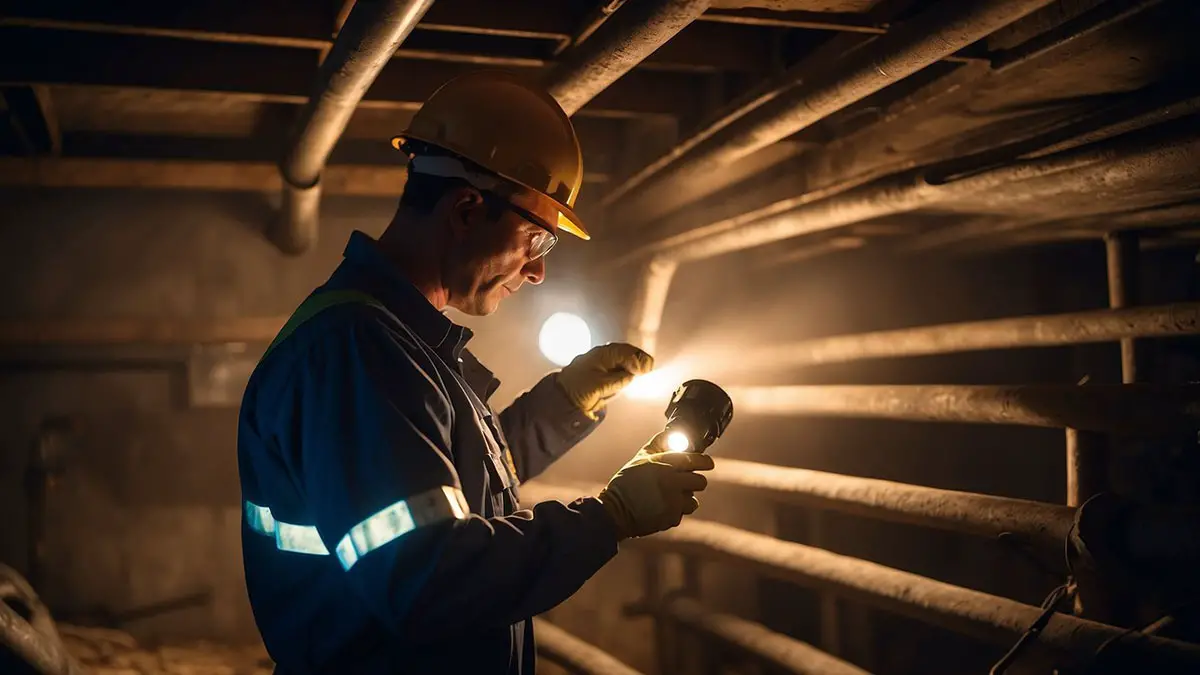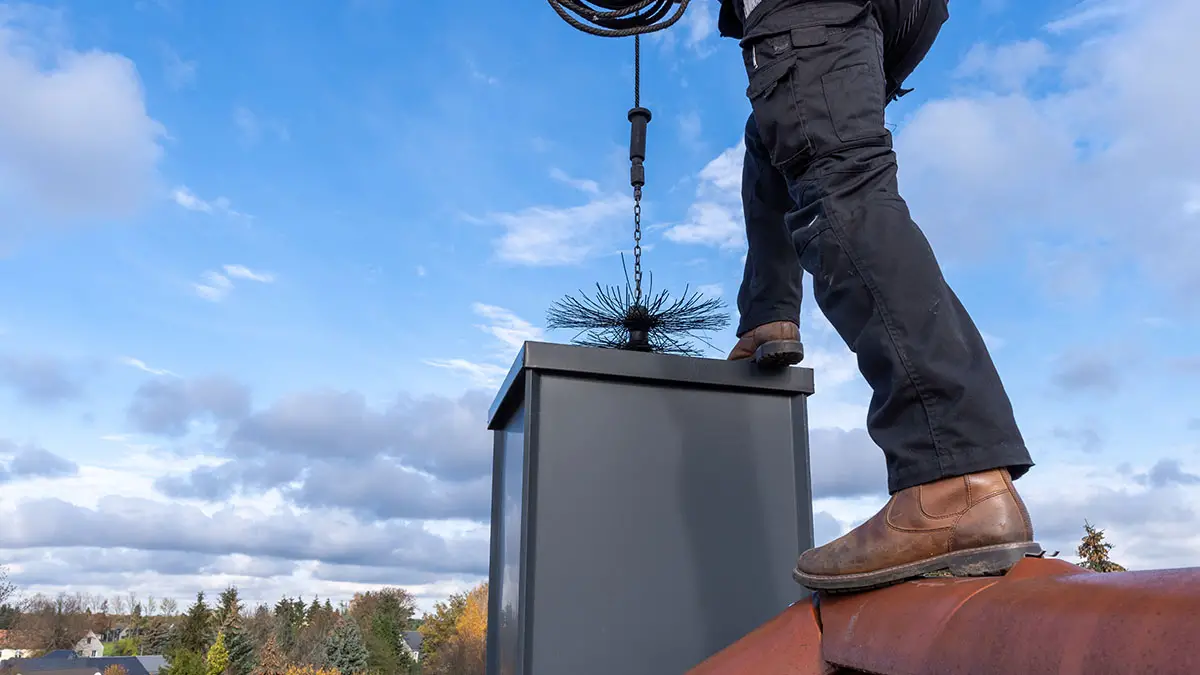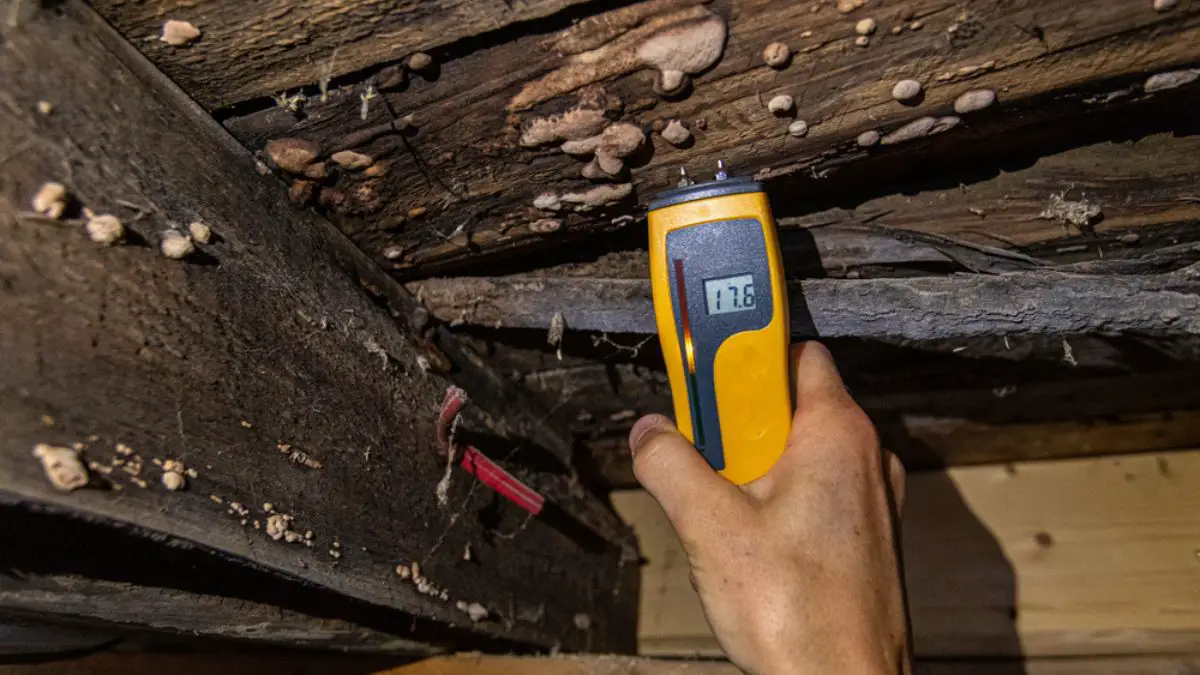If you’re buying a home, chances are you’re researching home inspection vs appraisal. On the surface, the differences between an appraisal and an inspection may be unclear.
Both are valuable tools when purchasing your house that could affect your mortgage loan approval by lenders. Consequently, it’s critical to understand both processes so that they can aid you during closing. With all this information, take advantage of these two services before finalizing any decisions on your dream property!
A home inspection identifies potential major issues, while an appraisal determines the property’s estimated market value. An inspection can help reduce risks, protect finances, offer peace of mind, and provide valuable information to aid decision-making. An appraisal is necessary for mortgage loan approval and ensures the property is worth the purchase price.
What is a Home Inspection?
When buying a home, it is essential to have a professional home inspection completed to identify any potential major issues.
A home inspection is a non-invasive examination of the overall condition of a home and its components. During this exhaustive assessment, the inspector will meticulously analyze all aspects of the house, including its structure, windows and doors, electrical wiring, and plumbing system.
If you are present while they conduct the inspection, they can bring attention to any red flags that may exist or could arise in the future. A home inspection is an invaluable step in your journey toward homeownership!
Upon inspection completion, you will receive a detailed home inspection report outlining what was inspected and any necessary repairs. You can then use this information to negotiate with the seller, so they would take care of or compensate for part (or all) of these repair costs.
What a Home Inspection Includes?
A home inspector will walk you through the property to point out and explain what they’ve discovered during the home inspection process. Any detected major issues will be documented, photographed, and reported to the prospective homebuyer.
They will also provide recommendations on how to solve any potential problems found in the home and any preventative measures that can be taken for future maintenance.
A home inspection includes the following items:
- Evaluate the condition of major systems, including plumbing, heating, air conditioning, electrical, and roofing.
- Check for evidence of pests or other infestations.
- Examine walls, ceilings, and floors for signs of wear and tear or water damage.
- Inspect windows and doors for proper operation and security.
- Verify all safety features, like GFCI outlets, are functional.
- Test major appliances to ensure they are in good working order.
- Make sure all smoke detectors are present.
- Check insulation and ventilation.
What a Home Inspection Doesn’t Include?
All home inspections have some limitations. An inspector cannot predict future performance or uncover hidden conditions. It’s important to remember that a home inspection is an evaluation of the condition of a home at the time of inspection, not a warranty or guarantee.
The inspector cannot tell you how long components will last but will provide information on their current condition and help you decide if anything needs immediate repair or replacement.
A home inspection does not include a review of the following:
- The interior or exterior condition of shutters, awnings, blinds, or other window treatments.
- Economic feasibility or advisability of any repairs noted in the written report.
- Unless specifically requested by the client (usually requires an additional fee), any testing for mold, radon, hazardous materials, wood-destroying organisms, etc.
- Evaluate whether the property is free from environmental hazards such as asbestos or lead paint.
- A survey of the lot and improvements to verify legal descriptions and locate setbacks for existing structures and improvements that may encroach onto other properties.
- Unless specifically requested by the client (usually requires an additional fee), the operation of pool equipment, hot tubs, or sprinkler systems.
Is a Home Inspection Required?
Appraisals are typically mandatory, but inspections may be optional. In a heated market, prospective buyers might waive inspection contingencies to make their offer more attractive to sellers; however, this doesn’t come without risks.
When buying a home “As Is,” you essentially agree to buy the property in its current state. Buying a property “As Is” or waiving a home inspection contingency doesn’t mean you can’t still have a home inspection performed. It only means that the home inspection findings are for informational purposes only and can’t be used them renegotiate the home purchase agreement.
Buyers should still consider getting an inspection done to safeguard themselves from potential financial dangers. If you’re unsure of what step to take when inspecting the property before purchasing it, seek advice from your real estate agent or another professional for guidance and assistance.
Benefits of Having a Home Inspection
Securing an appraisal is paramount for a mortgage, and it’s always in the lender’s best interest to do so. Similarly, inspecting before purchasing any home should be mandatory, as this will also benefit YOU greatly! Here are just some of the many advantages associated with using this service:
- Investing in a property is a huge decision; an inspection can reduce risks and protect your finances.
- A home inspection will offer you peace of mind by assuring you that your purchase is sound.
- It provides beneficial information about the condition of the dwelling so that you have all available details before making a choice.
- If constructing rather than purchasing, it guarantees proper construction was completed before occupying.
- An inspection gives leverage when bargaining with sellers for better rates or terms.

What is a Home Appraisal?
Obtaining a home appraisal is an obligatory step for nearly all mortgages, which entails determining the estimated market value of your property. According to legislation, only certified third-party companies unaffiliated with a loan organization are authorized to perform appraisals.
To estimate its worth, appraisers will consider the residence’s condition and geography compared to similar homes recently sold in that area – commonly referred to as comps or comparables. Appraisal methods can include online research and viewing the inside and outside of the building or performing an exterior-only assessment, often called a drive-by appraisal.
A licensed appraiser issues an expert appraisal report of the home’s value after collecting and evaluating all the necessary data. This written report helps lenders decide on loan approval, with 97% being the maximum percentage allowed based on this appraisal report.
If it comes back lower than your offer price, you have to either pay up from pocket or re-negotiate with the seller, but if higher, congratulations! You’ll get more equity in the house without having done anything extra!
How the Home Appraisal Process Works
Engaging in the appraisal process entails inspecting and assessing a home, comparing it to similar properties, then generating an official report. This is typically completed after a sale has been accepted. Banks usually order this service since they have more at stake when valuations of homes aren’t accurate – although buyers have to pay for it in most instances.
When your mortgage lender orders an appraisal, a third-party professional inspect the home’s interior and exterior to come up with a reliable estimation of its worth. These findings are then presented in a detailed report shared between the borrower and lender.
These reports are structured in accordance with the esteemed Uniform Standards of Professional Appraisal Practice so that strict integrity is upheld. As long as there are no conflicts between the appraisal and any contingencies on your offer, loan processing can begin immediately!
After you receive all necessary closing documents and sign them off, you can rest easy knowing that your property was paid a fair price.
When is a Real Estate Appraisal Required?
An appraisal is necessary when a home or other property is being sold to determine the property’s fair market value and protect both parties involved. Other reasons for requiring an appraisal may involve refinancing a mortgage, getting a home equity loan, or establishing an estate value.
These scenarios include:
- When purchasing or selling a home
- When applying for a loan or refinancing an existing loan
- When taking out a home equity line of credit
- When settling an insurance claim for damage to the property
- When dividing assets in a divorce proceeding
- When executing an estate sale
Benefits of Having a Home Appraisal
The appraisal value affects a buyer’s approval for a mortgage. A real estate appraisal can provide invaluable insight into the value of your property and offers several key benefits for homeowners. These include:
- Accurate assessment of property appraised value
- Peace of mind knowing your investments are sound
- Ability to sell or refinance quickly and confidently
- Get cash out of your home for repairs or debt consolidation
- Access to current market information to make well-informed decisions
It’s essential to ensure that your home’s cost isn’t more than its true value. If the appraised price is too low, there may not be room to negotiate repairs and potentially force a seller to reduce the sale price.
What if the Appraisal Come Back too Low?
When a low appraisal occurs, it is an undeniably tense situation for the buyer and seller alike. Although not frequent, these can happen more often during periods of significant demand with few available homes – situations where competition leads to buyers paying prices exceeding appraised values.
If you are faced with that issue as a seller, there are several steps you may take to salvage the deal:
- Lower your asking price
- Request from the buyer cash over appraisal
- Dispute the result itself.
As a buyer, low appraisals can work to your advantage. This could result in the seller offering you a discounted asking price, allowing you to purchase your home at an equitable rate confidently.
Alternatively, they may choose instead to wait out and hope for higher or cash offers later on down the line. Fortunately, having an experienced real estate agent familiar with the market will help ensure that any decisions made during this real estate transaction!
Home Inspections vs FHA and VA Appraisal Inspections
Home appraisal and inspection are generally two distinct processes for FHA and VA loan borrowers, which can be very confusing for FHA and VA borrowers.
When a homebuyer decides to go with an FHA or VA-backed loan product, they must undergo a more comprehensive appraisal than normal. The FHA appraisal aims to ascertain the value of the intended purchase, ensure it can be used as security for the loan, and determine if it meets HUD’s property requirements according to an appraisal inspection checklist.
So it depends on what appraisers uncover during their visit; however, they will use these details to ensure that potential buyers live safely and have access to structurally sound housing.
Taking it a step further than the traditional home appraisal, VA loans are backed by the US Department of Veterans Affairs and require that appraisers prove not only that the house is “safe, sound and sanitary” but also if there is enough space for all basic living requirements such as cooking, sleeping, and bathing.
All necessary amenities must be in good condition to meet VA safety standards.
When appraising a property in a rural area, the real estate appraiser will inspect private road access and evaluate whether or not the drainage system is adequately directing water away from the home. Furthermore, they’ll ensure it has access to clean drinking water from an authorized health institution.
However, while necessary, neither the FHA nor VA appraisal inspection cover all that a house inspection does. The home inspector Standards of Practice require that the inspector inspects all accessible areas of a home and reports on any deficiencies found. This includes an inspection of the roof, exterior, attic, insulation, ventilation, plumbing systems, electrical systems, heating and cooling equipment, and other home components.
You may miss major defects or important information regarding the home’s condition only with an FHA or VA inspection.
For example, a VA or FHA professional appraiser won’t:
- Go into a crawl space to check the structure, foundation, or plumbing.
- Open an electrical panel or check individual wall outlets.
- Won’t test HVAC systems other than to document whether or not a heat source is present.
- Won’t walk the roof to inspect it closely.
- Check an attic space without a pull-down ladder.
However, a VA or FHA professional appraiser will:
- Provide an accurate estimate of the market value of a property.
- Research local real estate data and comparable sales to determine the home’s fair market value.
- Review past appraisals and other documents related to a property’s sale or purchase price.
- Consider any special features or upgrades to the home that could increase its value.
- Provide a detailed report of their findings and conclusions.
Understanding the differences between a licensed appraiser and a licensed home inspector is important, as they serve different roles in home buying. Banks or lenders typically hire appraisers to assess the property’s fair market value objectively.
Home Inspection Vs Appraisal: What’s the Real Difference?
In its simplest form, a home appraisal establishes the value of a property while an inspection gauges its condition. Aside from their distinct purposes, there are several other differences between an appraisal and an inspection:
- A mortgage lender will arrange a home appraisal for you while you yourself must book an inspection.
- An appraisal may affect the loan funds accessible to you; however, inspections won’t have such an effect.
- Appraisers usually only detect issues visible to the naked eye, whereas inspectors draw upon specialized equipment and expertise to uncover potential deeper problems with your property.
- During the home inspection, potential buyers are invited to journey through their future home with an inspector to receive a comprehensive education and understanding of the property. Home inspection reports are usually available within 24 to 48 hours post-inspection.
- Unlike inspections, appraisals usually occur without any company or interaction; you’ll have to wait until they finish compiling results before hearing about their findings. Appraisal reports are usually available within 7 days post-appraisal.
When evaluating a home, an inspector and appraiser have distinct areas of expertise.
An inspection merely assesses the condition of the residence. At the same time, an appraisal examines factors such as comparing prices in the area, lot size, house features, crime rates, and school zones.
Both are fully trained, certified professionals with unique skill sets to consider when assessing. While all states have licensing requirements for appraisers, some US States do not have licensed home inspectors, making certification organizations like NACHI or ASHI critical.
How are Home Appraisals and Home Inspections Similar?
Although appraisals and inspections play distinct roles in new home purchases, they share a few similarities. Home inspections and appraisals are unequivocally advantageous to both the homeowner and lender.
While home inspectors will not set the home’s market value, discovering major red flags can indicate the home’s condition may not be worth the purchase price. Ensuring that a home is worth what you’re paying for and safe to live in, these services help protect all parties involved from any unexpected surprises or issues with the sale.
Moreover, since third-party professionals carry out these jobs independently of either party, with no vested interest in their results, you can rest assured that they will provide unbiased findings on your property.
Generally, the homeowner is responsible for paying for an appraisal and inspection when purchasing a property. While this can be costly, it is highly recommended that you get both services performed to ensure you are making a good investment decision.
Why Should You Get a Home Inspection and Appraisal
Never mistake a home assessment conducted during the appraisal process for an actual home inspection. An appraiser’s job is to determine the property value, so their examination will differ from that of an inspector looking for potential house problems. Consequently, they’ll pay attention to distinct things while touring your residence.
Although the appraisal procedure does have an inspection component, it is not as comprehensive as a separate home inspection. That’s why it pays to get appraised and inspected simultaneously for your benefit and peace of mind.
But what should you do first? Generally speaking, getting an inspection done before anything else is best because any expensive repairs or deal-breaking issues that emerge can be tackled right away without wasting further funds on unnecessary steps such as appraisals.
Choosing the Right Home Inspector
To make the most of a home inspection, you must hire an experienced and qualified individual. Ask your realtor, relatives, or acquaintances for recommendations when selecting an inspector – it will pay off in the long run!
- Make sure you choose a home inspector who is licensed, certified, and qualified to inspect in your state or province. Look for inspectors certified by NACHI or ASHI.
- Ask for references from past customers and read online reviews about your chosen home inspector.
- Inquire about their experience and background and what services they provide.
- Request a copy of a sample inspection report that includes all the inspection details and any repairs the inspector recommends.
- Ensure the home inspector carries insurance to cover potential damages or liabilities arising from the inspection process.
- Find out what types of inspections they can do (e.g., roofing, electrical, HVAC) and discuss any special concerns you have before hiring them.
- Ask if your chosen home inspector is willing to meet with you after the inspection to answer any additional questions you may have about their findings and conclusions.
Home Inspection vs Appraisal Costs
Home inspection and appraisal costs vary greatly and depend on the size of the home, the area in which it is located, and the complexity of the inspection/appraisal required. For a traditional 1500 one-story house, a home inspection costs $350–$475, while an appraisal usually costs $500–$750.
In some instances, such as when an FHA or VA loan is involved in a purchase, an appraisal may be required and will typically cost more than a basic home inspection. It’s important to note that many lenders require appraisals for all loan types.
Ultimately, it is important to talk to your lender or real estate agent to determine which type of inspection/appraisal is needed and what cost you can expect. For buyers who feel comfortable doing so, it may be possible to negotiate with potential inspectors/appraisers for lower rates.
A sizeable house in a costly area like California, New York, or Hawaii could bring home inspection costs upwards of $750 to $1,500, and appraisal costs could reach $2,000 or more! That being said, it is incredibly important to remember that prices can vary greatly.
Key Takeaways
- When buying a home, a home inspection and an appraisal are valuable tools that can affect your mortgage loan approval by lenders.
- A home inspection is a non-invasive examination that can identify potential major issues and provide recommendations for future maintenance.
- Inspections may be optional but are highly recommended to safeguard buyers from potential financial dangers. A home inspection can provide valuable information even if you buy a property “As Is” or waive the inspection contingency.
- Obtaining a home appraisal is an obligatory step for nearly all mortgages, which entails determining the estimated market value of your property. It can help estimate a home’s worth by considering its condition and geography in relation to comparable properties recently sold in that area.
- A home inspection can reduce potential risks, protect your finances, offer peace of mind, provide beneficial information about the condition of the dwelling, and give leverage when bargaining with sellers for better rates or terms.
Home Inspection vs Appraisal FAQs
Are home inspection and appraisal the same thing?
No, home inspection and appraisal are not the same things. A home inspection is a thorough, non-invasive examination of a property to assess its condition, while an appraisal estimates a property’s value based on recent sales and market data.
Which is more important, appraisal or inspection?
It depends on the context. Since lenders require home appraisals, the appraisal is more important to the lender. The home inspection may be more important for the buyer because it can reveal problems with the home that could result in costly repairs down the line.
Ultimately, the appraisal and home inspection are important when buying a house, so it’s best to get both done.
Does home inspection affect appraisal?
No, appraisers do not require inspection reports to carry out their work. The role of a real estate appraiser is distinct from that of a home inspector. While a home inspector assesses the physical condition of the property, a home appraiser is focused on determining the home’s market value based on recent sales in the area.







